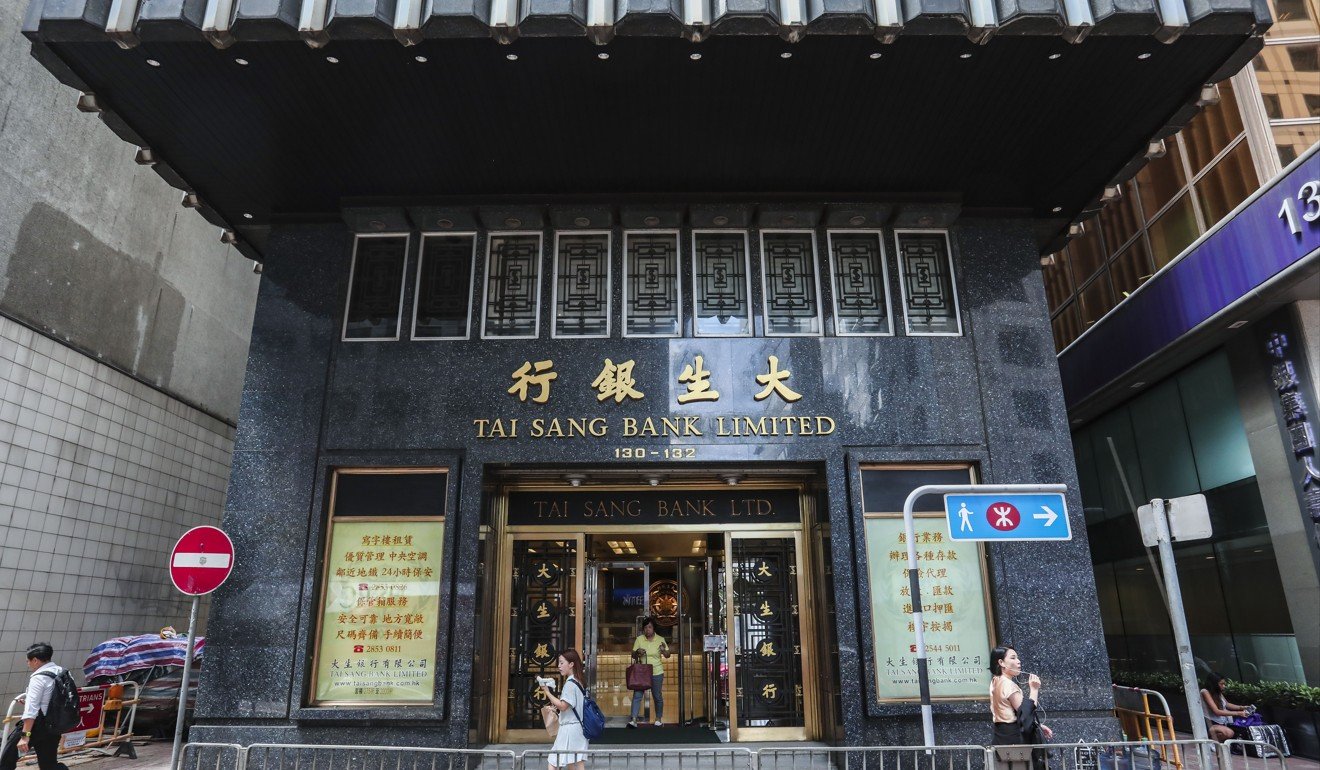
Tai Sang shows how an octogenarian, single-branch bank can stop time and defy technology
The bank, founded in 1937 and with a single branch in Hong Kong, reported HK$41 million in 2017 profit
With digital banking now the norm for most people, and as Hong Kong prepares to issue its first raft of virtual bank licences, how is a traditional lender to survive?
Large, well-established banks tend to rely on their sizeable branch networks to compete.
But it seems there is still a place for small, old-fashioned lenders. The secret to their survival may be the personal touch they provide in an increasingly autonomous world.
“We know all the bank staff like old friends. This type of personal service is not found in the big international banks,” said Haywood Cheung Tak-hay, a gold trader and customer of Tai Sang Bank.
The company, established in 1937 by Ma Kam-chan, is still owned and managed by family members, with 11 of the bank’s 15 directors carrying the surname.
Any individual can open a bank account with Tai Sang with just HK$100, but the bank said it’s not equipped yet to serve corporate accounts. Safe deposit boxes can be rented for an annual fee of HK$240.
The Ma family is one of the wealthiest in Hong Kong, owning prime property and hotels in Hong Kong and the US through Tai Sang Land Development, publicly traded with HK$1.5 billion in market value. William Ma Ching-wai, chairman of the developer, also chairs the bank’s board of directors. The Ma family declined to be interviewed for this article.
The family is known to be very conservative and only has a small customer base of stockbrokers, gold traders and some property investors. But it is still able to make ends meet.
“With a total headcount of around 30 and operating in a single location, the group places a lot of emphasis on effective communications among management and staff,” William Ma said in an annual report posted on the Hong Kong Monetary Authority website. “The group observes a strict customer-acceptance policy. The group is committed to delivering products and services with quality and flexibility so that solid customer relationships are established and maintained.”

Such a tiny bank, unsurprisingly, has deposits and loans that are also on a very small scale. Total deposits from customers at the end of 2017 stood at HK$1 billion and total customer loans amounted to HK$168 million – not even enough to buy some of the more expensive properties in Hong Kong.
Tai Sang Bank’s market share of deposits in the city is a negligible 0.009 per cent of HK$11.689 trillion sitting in the accounts of all banks as of the end of last year. Its loan book accounts for only 0.002 per cent of all loans – HK$9.313 trillion at the end of 2017.
None of this is a problem for the lender’s core customers.
“The founder of Tai Sang Bank, Ma Kam-chan, was the president of the gold exchange in 1952. Ma’s family and the bank have a long history of banking relations with gold traders and stock brokers. We have known each other for decades, and there is a close bond and trust,” said Cheung, who is the president of the Chinese Gold and Silver Exchange Society.
“The bank gives us flexible credit facilities and fast cheque-settlement services.”
Cheung does not think virtual banks will pose a serious threat to traditional lenders.
“What’s important is that it provides the services brokers and gold traders need. As long as it can serve the community and its core clients well, it will survive,” Cheung said.

